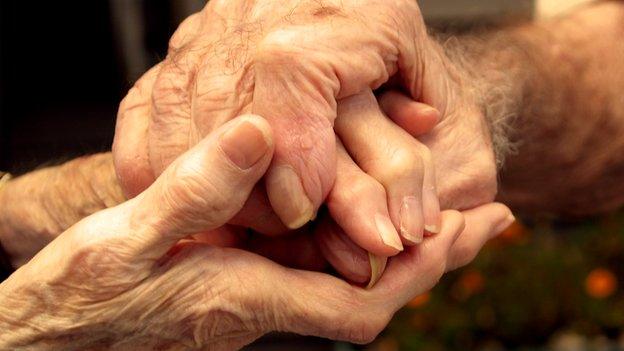Right to die campaigner starved herself to death
- Published
Jean Davies was a high-profile right to die campaigner for many decades
A long-term campaigner for the right to die starved herself to death over five weeks because she could not have her life ended legally.
Jean Davies, 86, did not suffer from a terminal illness but said her life had become "intolerable", and wanted to die in her own home.
Her daughter Bronwen, a nurse from Cardiff, said her mother's death at home in Oxford followed a year of increasingly poor health.
Mrs Davies died on 1 October.
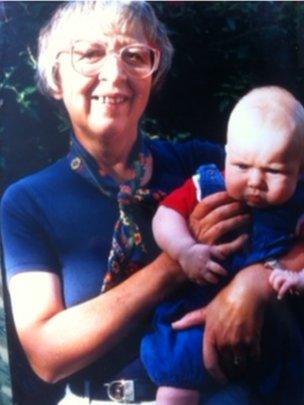
Jean Davies had discussed death by starvation with her family in the years before she died
Before her death, she gave an interview, external to the Sunday Times speaking about her decision to end her life.
Mrs Davies had seen a friend attempt suicide using medication, which had not worked, and she did not want to involve anyone else in helping her die as assisted suicide is illegal under UK law.
She was suffering from episodes of unconsciousness and had worried about dying from one of these, and her family having to find her body in the house or garden.
Bronwen Davies said her mother had had a number of chronic conditions and her health had dramatically declined.
Mrs Davies had also had a series of mini strokes.
"She knew it was one of the things that could lead to a type of dementia," Ms Davies told BBC News.
"She was seen by a psychiatrist after she took the decision to end her life and she took full marks on the mini-mental test they did and was found to have capacity to make decisions about her own life."
'She enjoyed life'
Ms Davies said after her mother had had an illness which had taken away her appetite she made the decision not to start eating again.
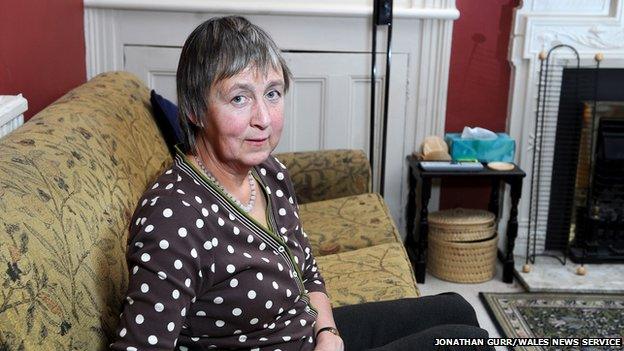
Bronwen Davies said her mother had been 'fiercely independent' and enjoyed life
"After the period of illness, she had five weeks where she didn't eat again. She mistakenly thought it would be quicker than it was once she stopped drinking water [after a few weeks].
"She was very frustrated by how long it took her to die after she stopped drinking."
Ms Davies said her mother had been a very active person. She was a former maths teacher, including spending a period of time working at the now-closed Howardian School in Cardiff when her husband worked at Cardiff University.
She became involved in the right-to-die campaign as far back as the 1970s and was president of the World Federation of Right to Die Societies from 1990 to 1992 and was chair of the Voluntary Euthanasia Society UK (now Dignity in Dying).
"It was very hard to accept that her life had become slowly, slowly, less satisfying to her," said her daughter. "She was no longer able to get about.
"She was a fiercely independent woman. She enjoyed people, she enjoyed music, she enjoyed art. She enjoyed life.
"I think it would have been easier to accept if she had had a terminal illness and if she had been more unwell."
'Proud'
Asked why her mother had not chosen a faster method of dying, Ms Davies said she had talked in the past about the possibility of death through starvation.
She had also realised that her action could raise awareness of the cause she had spent many years campaigning in support of, and had contacted her old colleagues at Dignity in Dying.
"I think it occurred to her after she started her course of action that it was something which could attract attention," Ms Davies said.
"She sought publicity after her decision."
Mrs Davies spent the first few weeks of her fast being visited by family and friends.
"She was having a wildly social time in the first two weeks," said her daughter. "I had all the time to tell my mum what she meant to me.
"I spent the last four weeks in Oxford so I could be near her."
Ms Davies, who has a sister and two brothers, said watching her mother die was not easy, but added: "I have always been proud of her. All the family are proud of her and how she did it.
- Published10 October 2014
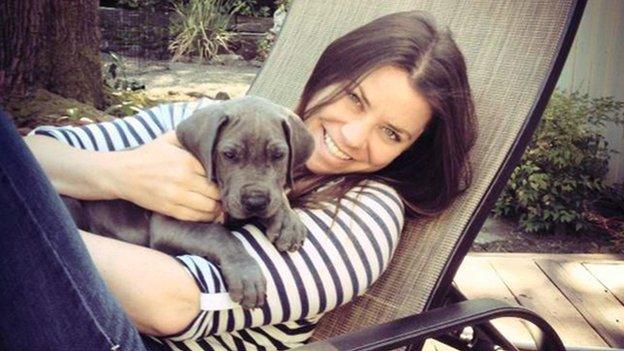
- Published6 October 2014
- Published13 July 2014
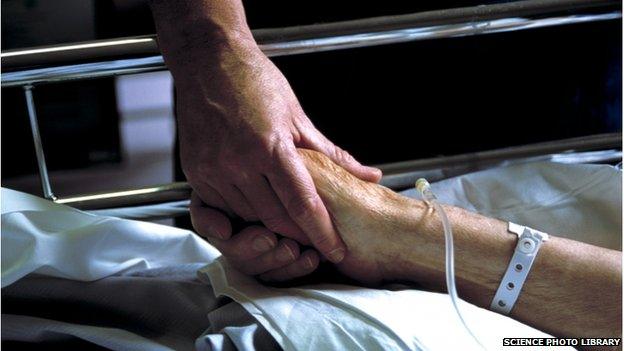
- Published10 September 2015
